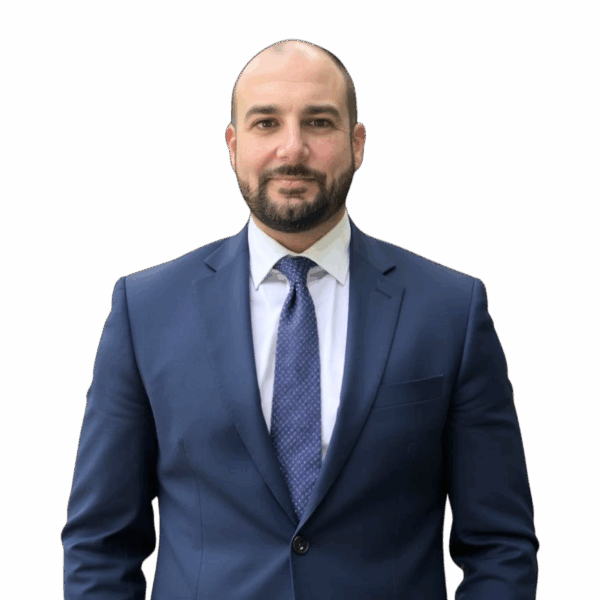
Attract and retain your ideal employees with a benefits plan designed by a specialist financial advisor for your small business.
Small business owners are accustomed to wearing many hats, especially in the early days of growing a business. As businesses grow, hiring employees becomes a necessity.
But attracting qualified candidates to apply for small business jobs can feel like competing on an uneven playing field with large employers offering outsized compensation and benefits packages. The good news, if you’re a small business owner, is that a financial advisor with the right knowledge and experience can tilt the playing field back in your favor.
You’ll likely find dozens of nearby financial advisors well-suited to help you prepare a personal financial plan. But it may be more difficult to find a financial advisor who specializes in helping small business owners build an effective employee benefits program.
Fortunately, many financial advisors offer virtual services so you can meet online no matter where you (or they) live. This means you can choose to hire a specialist financial advisor who lives hundreds of miles away if you decide their knowledge and experience working with small business owners is a better fit for your unique circumstances.
How Small Business Financial Advisors Can Help You Build an Employee Benefits Program
💡 In the Q&A below, you’ll gain insights from financial advisors who help small business owners set up impactful employee benefits programs to attract and motivate their ideal employees.
🙋♀️ Do you have questions not answered below? Use the form on this page to submit your questions, and we’ll update this article with answers from the financial professionals and educators in the Wealthtender community. You can also contact the financial advisors featured in this article directly to set up an introductory call or ask your questions by email.
📈 Setting Up Employee Benefits for Small Business Owners
This page is organized into sections to help you quickly find the information you need and get answers to your questions:
- Interactive Map of Financial Advisors Specializing in Employee Benefits for Business Owners
- Q&A with Financial Advisors Specializing in Employee Benefits for Business Owners
- Get Answers to Your Questions About Setting Up Small Business Employee Benefits
- Browse Related Articles
Find Financial Advisors Specializing in Employee Benefits for Business Owners
📍 Click on a pin in the map view below for a preview of financial advisors who specialize in employee benefits for business owners. Or choose the grid view to search our directory of financial advisors with additional filtering options.
📍Double-click or pinch pins to view more.
Q&A: Financial Advisors Specializing in Employee Benefits for Business Owners
Seven Questions with Daniel Yerger, MBA, CFP®, ChFC®, AIF®, CDFA®
We asked Longmont, Colorado-based financial advisor, and small business specialist Daniel Yerger to answer seven questions useful to business owners thinking about building a benefits program for their employees.
Q: What is a common financial planning challenge unique to small business owners interested in setting up employee benefits that you frequently encounter? How do you work with them to overcome this challenge?
Daniel: Many business owners are trying to walk a tight rope between the costs of employee benefits and being an attractive long-term employer. A core element of this consideration that many business owners need help understanding is whether they’re trying to attract and retain talent for the long term or if the nature of their business is simply going to have high turnover.
Examples of a long-term talent retention goal might be a software company or professional services such as law firms, medical practices, and accounting firms, while short-term retention might be convenience stores or amusement parks.
A key element is helping employers align their business model and revenue generation back to how their employees actually assist in growing the top line and maintaining the bottom line for the business owner. In turn, this helps provide a compensation philosophy that can help the business not only grow its talent base but grow its revenues and profits.
Q: For small business owners who are unsure whether or not they should hire a financial advisor to help them establish their employee benefits program, what guidance can you provide to help them make a more informed and educated decision?
Daniel: A core question has to be asked before hiring a financial advisor: Am I looking to maximize the value of this benefits plan for myself, for myself and my employees, or just for my employees? Different advisors can help implement different strategies and for different cultures more efficiently.
If you’re looking to maximize your personal benefits through financial planning, almost any competent CFP® Professional can help do that. In turn, if you’re looking to develop a more holistic compensation package, then looking for a specialist in this area is going to make more sense.
Beware also the bias of the professionals you might hire: Those who offer to broker group health or other insurance benefits may stand to recommend certain policies or carriers that compensate them more lucratively than others; it helps to separate the advice and planning of the compensation plan for you and your employees from the vendors who will implement it, to ensure that the overall compensation plan is well structured before third party vendors such as insurance carriers and retirement plan administrators come into the picture.
Q: How do the services you offer small business owners interested in offering benefits to their employees distinguish your firm from other advisory firms?
Daniel: As the firm’s owner and founder, I research compensation models as part of my doctoral studies in financial planning at Kansas State University. An intimate familiarity with both the academic and theoretical literature behind employment and compensation, as well as almost a decade as a practicing CFP® Professional, gives MY Wealth Planners a unique background in helping small business owners implement the most effective compensation plan for their firms.
Q: When you first speak with a small business owner interested in setting up a benefits plan for their employees, what questions do you like to ask to understand their unique circumstances better and determine how you can best help them achieve their goals?
Daniel: What is your vision of this compensation plan? Does this help you and your family live better lifestyles and lives? Or is your first thought about what’s going to increase the feeling of well-being your team gets from working with your company?
Get to Know Daniel Yerger, Financial Advisor for Business Owners:
View Daniel’s profile page on Wealthtender or visit his website to learn more.
Q: What questions do you recommend small business owners ask financial advisors they’re considering hiring to help them decide if they’re a good fit to help them create an employee benefits program?
Daniel: These are a few of the questions I encourage small business owners to ask a financial advisor before making a hiring decision, and an explanation of why these are important questions to ask:
1. Are you going to help me plan for the benefits for my employees, plan and implement, or mostly just implement?
It’s best if they just help you plan and then introduce you to vendors, but it can be acceptable for them to help you implement so long as a thorough planning process has been completed first. If it’s solely implementation, find a planning professional first. Otherwise, you might end up sold a lot of nails by a carpenter whose only tool is a hammer.
2. Will you be paid any commissions, fees, or revenue sharing by other vendors or third parties for the recommendations you’re making for me?
Flatly you should avoid this. While commissions are a normal part of the implementation of things like group insurance plans, this is a conflict of interest that has been empirically shown to create worse client outcomes.
If you like this provider enough to “get past that,” asking them to commit to pledging any commissions or revenue sharing to charity can help suss out whether they’re more financially interested in being paid to sell you products or whether the sales are incidental to the planning they’re really here to provide you with.
3. Do you think we should have a 401(k) plan?
This is a tricky one because many vendors will default to a 401(k) plan due to the ability for it to “run itself” with the right vendors in place. However, before jumping straight into a 401(k), business owners should thoroughly examine the options of a SEP IRA, Solo 401(k), and SIMPLE IRA as being a natural progression to consider before reaching a full 401(k) plan.
A SEP or Solo 401(k) are a great option for solo business owners or those whose only employees are their spouse or very short-term/part-time, and a SIMPLE IRA can be considered a simplified version of a full 401(k) plan. While 401(k) plans can be great recruitment, retention, and compensation tools for bigger firms, they also come with a significant compliance burden and much higher costs than the other types of plans and should rarely be the first stop in developing a retirement plan for your company.
Q: Is there a particularly memorable experience or a moment you recall working with a small business owner when you decided helping them set up benefits for their employees was an area you wanted to specialize in?
Daniel: Yes! A small software firm with several young (under 40) employees had set up a 401(k) plan for their company through their personal home and auto insurance agent. The result was a 401(k) plan placed in a fixed group annuity over the last decade, which yielded a total of 30% returns at the same time that the markets had grown by several hundred percent! This was a textbook case of a conflict of interest between the advice-giver only being paid to suggest certain things got in the way of what was best for the company and its employees.
Another case was advising a business owner with a small medical specialty practice. They would hire providers and lose them like clockwork within three to six months; despite having more patients than they could handle, they were forever drowning in their skilled employees’ turnover. The simple thing they were missing? They were providing health insurance but no retirement plan to help these highly compensated medical professionals reduce their taxes and were losing them to a competitor who offered a crummy retirement plan, but at least something that they could shelter their income in. The simple implementation of a retirement plan cut their annual turnover from 90% to 10% in a single year.
Q: For small business owners who are interested in designing a benefits program for their employees, are there books or online resources you recommend they consider?
Daniel: First, think holistically about the comprehensive compensation of your team: A great book for this is “The Great Game of Business” by Jack Stack, which teaches business owners not only to teach their employees how to keep score (understand the company’s financials) but teaches the business owner to give the employees a stake in the outcome, providing not only a financial model that aligns the employees with the employer but can give a lot of insight into how to think about an employee’s total financial well-being.
Another book to consider for employers who want to set up a 401(k) plan is Josh Itzoe’s “The Fiduciary Formula,” which is a front-to-back guide on all the best practices and obligations an employer has when setting up their employee’s retirement plan.
Are you a financial advisor who specializes in setting up employee benefits for business owners?
✅ Join Wealthtender and get featured as a specialist financial advisor based on your knowledge and experience. (Subject to availability and terms.)
✅ Sign up today and join financial advisors attracting their ideal clients on Wealthtender
✅ Or request more information by email:
Resources to Help You Choose a Financial Advisor
✅ Top Questions to Ask a Financial Advisor
✅ How Much Does a Financial Advisor Cost?
🙋♀️ Have Questions About Setting Up Employee Benefits for Your Small Business?
📰 Browse Related Articles
Are you ready to enjoy life more with less money stress?
Sign up to receive weekly insights from Wealthtender with useful money tips and fresh ideas to help you achieve your financial goals.
About the Author

Brian Thorp
Founder and CEO, Wealthtender
Brian and his wife live in Texas, enjoying the diversity of Houston and the vibrancy of Austin.
With over 25 years in the financial services industry, Brian is applying his experience and passion at Wealthtender to help more people enjoy life with less money stress.













